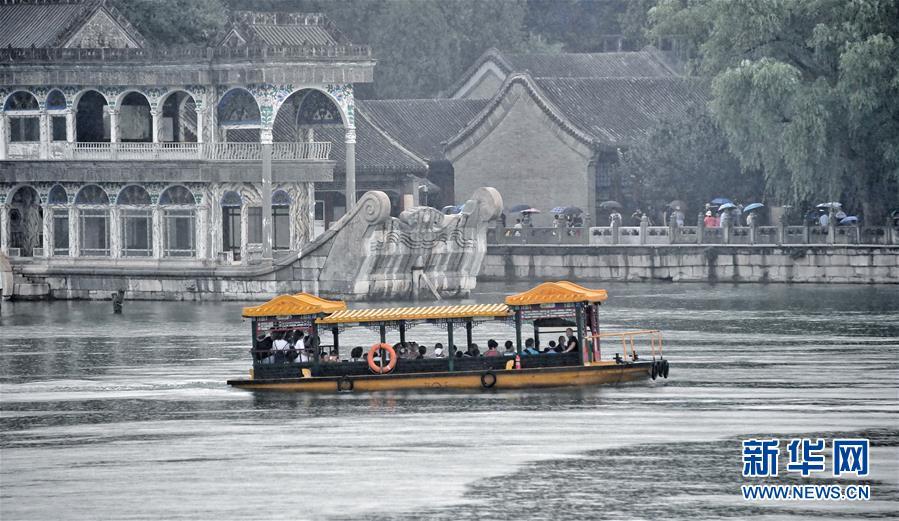China’s cultural and tourism industry has resumed its vitality after the announcement from the Ministry of Culture and Tourism announces that cross-province group tourism is allowed to restart in multiple regions across China.

Tourists take a boat in the Summer Palace in Beijing. (Photo: Xinhua)
The tourism industry has reacted proactively to the news. Some travel agencies have held meetings on preparations to restart operations overnight; other travel companies have stepped up the design and production of posters for the resumption of work.
According to statistics from Ctrip, China’s largest online travel services provider, within one hour after the announcement, the number of searches in various tourism business sectors, including hotels and civil aviation, rose rapidly on the platform.
The instantaneous search volume of package and self-guided tours has surged by 500 percent compared with that before the restarting of cross-province group tourism. The willingness of domestic tourists to travel during summer vacation has been rapidly stimulated.
"The downtime is a tough period for me, with lower income and a lot of anxiety. After half a year of leisure, I am looking forward to returning to the original busy working state. I hope to be happy and practical." Wang Chong, an employee for a tourism company in Shanghai, shared.
Due to the outbreak of COVID-19, the business of China’s culture and tourism companies came to a halt. The total income of China's tourism industry reached 6.5 trillion yuan ($930 billion) last year. In this sense, a single day of inactivity could lead to losses estimated at 17.8 billion yuan.
"Although the cross-province group tours have been suspended and many travel agencies have been closed, we have not been idle. We have been doing market research and preparation work," said Yang Yungang, chairman of a company on recreational vehicles.
Yang Yungang pointed out that China's macroeconomic fundamentals are still good; the tourism industry chain is still in place; consumers are still in pursuit of a healthy and better life, and the epidemic has increased consumers' demand for quality tours.


